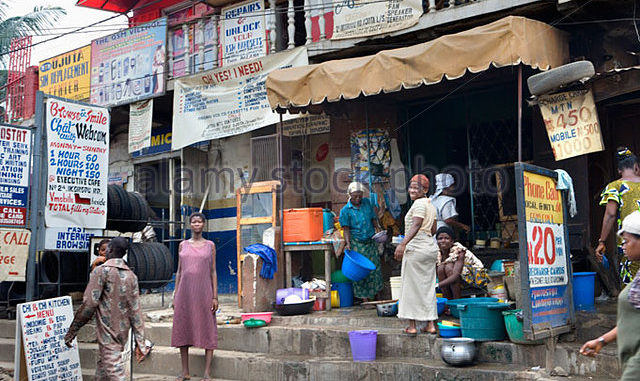
Organised Private Sector (OPS) players have identified 13 different factors inhib- iting business growth and development in Nigeria. The disclosure was made yesterday at the maiden meeting of the Presidential Quarterly Business Forum with members of the OPS and other stakeholders, held at the State House Conference (Old Presidential Banquet Hall), Abuja. These challenges, which include high cost of doing business, the forum said, were standing as clog in the wheel of Nigeria’s economic recovery process.
Members of the OPS, who voted at the session listing the encumbrances in order of occurrences, said the issues of access to finance topped as the major challenge
In voting to identify the challenges, access to finance got 32 per cent. Other hindrance to doing business in the country identified included access to foreign exchange, 23 per cent; high interest rates, 18 per cent and high energy cost, 18 per cent.
According to the OPS, these challenges were responsible for businesses that looked promising and vibrant at the onset, crumbling within the first five years of establishment.
The forum, which was chaired by Vice-President Yemi Osinbajo, who is the head of the Economic Management Team, also listed transport and infrastructural deficit scoring nine per cent, weak export support, inconsistent government policies, and absence of clear investment policies. Other challenges are approval delays, low support for domestic manufacturing, Customs delay and security issues.
President, Lagos Chamber of Commerce and Industry, Michael Cole, advised government to show consistency in its policies, if it hopes to reflate the economy and place it on the part of sustainable growth.
He lauded the presidency for initiating the quarterly forum, saying government could measure its progress by getting regular feedbacks from the citizens. Speaking to State House correspondents after the meeting, Frank Udemba, President, Manufacturers Association of Nigeria (MAN) said it was encouraging that government now realises the importance of the private sector as the engine room for growth.
“It’s a wonderful development, the fact that government now engages the organised private sector and recognising the fact that the private sector is possibly the engine of growth, the driver of the economy. “So, we are happy about that. And this has given us opportunity to air our views and concerning the policies they have and how to get this country out of the current recession.
It’s something that should be encouraged and we hope that it would continue, they will sustain this initiative. “Already, government has promised to sell off some assets to beef up the foreign reserve, that is key. We have a lot of challenges of doing business, but basically, they have to pump in a lot of money into infrastructure because that is a quick way to reflate the economy,” he said. The meeting had in attendance members of the Economic Management Team (EMT) led by Osinbajo.
The meeting is part of the Federal Government’s effort to continually engage regularly with different segments of the Nigerian public on its economic policies and direction.
The members of the private sector who took turns to list out the challenges and proffer both immediate and long-term solutions, called on the administration of President Muhammadu Buhari to address the nation’s dwindling economy. Speaking earlier, Osinbajo blamed the current economic challenge in the country on the restiveness of Niger Delta militants.
He said for a country, whose budgetary expenditure was predicated on a daily crude oil production of 2.2 million barrels to be producing at less than 1.1 million barrels owing to the activities of militants who frequently destroy oil installations, it calls for concern.
Osinbajo said: “Perhaps it’s important for us to understand the nature of this recession in which we have found ourselves. In discussing this issue of recession, there is tendency for people to generalise; a lot depends on what sort of recession and how we got here. “If we did not have vandalism in the Niger Delta as we are currently suffering, we will not have this recession today. Moreover, in looking at the solutions, we should try to focus on the type of problem we have and what instigated it, then we can begin to come up with better solutions,” he said.
While assuring the Federal Government’s readiness to address power sector challenges, Osinbajo explained that it would require a ‘revolution’ to shore up power to adequate level nationwide.
“We are doing a whole lot by interfacing with the private sector because we realise their role in the economy, if the Dangote refinery comes on stream, it will help us overcome some of those challenges, like the sub-sea gas pipelines, it will take care of vandalism. “But I think the more important thing is how to clean up the mess in the power sector, especially infrastructure.
In the short term, we will try to bring up power to an appreciable level to help the manufacturing sector,” he said. The event was organised to seek ways to get the country out of the present recession pulling members of the organised private sector together.
